BELTANE NIGHT: SANGRE DE MUERDAGO LIVE AT MERCADO NEGRO, AVEIRO
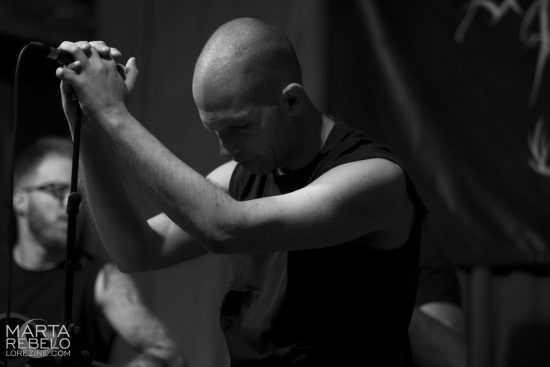 30/04/2018 There is something about travelling long distances to a show that always enticed me. Even more so with the prospect of watching the calm and gentle sounds of folk music. But tonight was special. Tonight we were partaking in Beltane, one of the four Gaelic seasonal festivals, along with Samhain, Imbolc and Lughnasadh. A night commonly celebrated with special bonfires, said to have protective powers, as well as dances, feasts and more. In Mercado Negro, however, we honored the coming of Summer with a different kind of gathering. More casual, more intimate, but with the same spirit as our ancestors.
30/04/2018 There is something about travelling long distances to a show that always enticed me. Even more so with the prospect of watching the calm and gentle sounds of folk music. But tonight was special. Tonight we were partaking in Beltane, one of the four Gaelic seasonal festivals, along with Samhain, Imbolc and Lughnasadh. A night commonly celebrated with special bonfires, said to have protective powers, as well as dances, feasts and more. In Mercado Negro, however, we honored the coming of Summer with a different kind of gathering. More casual, more intimate, but with the same spirit as our ancestors.
The ceremony started with Portuguese dark folk band Azagatel, who delighted everyone present with their subtle mixture of acoustic passages and electric instruments. The band was presenting their brand-new EP SOL, of which they played a couple of songs, like the beautiful “Sol Invictvs” and “Oestrymnis”. As the band played on, invoking a sense of wonder and belonging, vocalist Hrödulf alternated between bitter howls and soothing vocals, transmitting dark but positive energy to the audience, through songs like “Endovélico”, “Sangue dos Deuses” and “Samhain”. A simple start, albeit a pleasant one.
Sangre de Muerdago are no strangers to the Portuguese audience. Beloved for their endearing and light approach to their music, that combines elements of folk with lyrical themes that range from the beauty of Mother Nature to the search of long-lost friends, the band sat down on four chairs carefully placed on the stage. In front of them was a small altar adorned with a goat skull, various candles, bones and incense. The band had lit the candles and incense a few moments before sitting down, so that the air could be filled with a gentle aroma, setting the mood for what would be an exercise on introspection and emotional soul-searching.
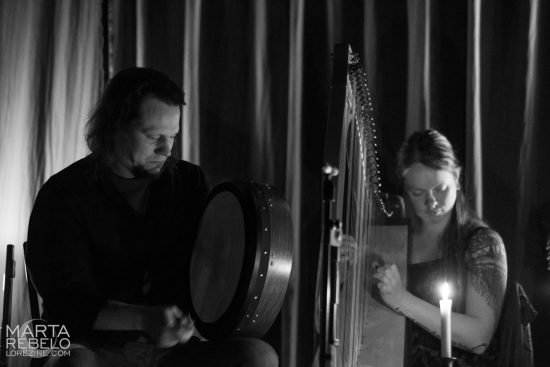 Erik Heimansberg started us off to the beat of a bodhrán which introduced us to “O Canto do Luar”, a song from Sangre’s recent release, Noite, released a week prior. This was, in fact, a concert in promotion to this very record and the band did not shy away from that fact, playing songs like “A Chamada da Néboa” and “O Xuramento”. With either an acoustic guitar or a hurdy-gurdy in hand, vocalist Pablo C. Ursusson guided us through most of the songs, explaining their meaning, always with a smile and with kindness always flowing through and from him. The audience gracefully responded back, smiling back with anticipation for what the band would play next. “Longa Noite de Pedra”, with lyrics from the late spanish poet Celso Emilio Ferreiro, “De Musgo e Pedra” and “Xordas” were other songs played on what could only be described as a peaceful night.
Erik Heimansberg started us off to the beat of a bodhrán which introduced us to “O Canto do Luar”, a song from Sangre’s recent release, Noite, released a week prior. This was, in fact, a concert in promotion to this very record and the band did not shy away from that fact, playing songs like “A Chamada da Néboa” and “O Xuramento”. With either an acoustic guitar or a hurdy-gurdy in hand, vocalist Pablo C. Ursusson guided us through most of the songs, explaining their meaning, always with a smile and with kindness always flowing through and from him. The audience gracefully responded back, smiling back with anticipation for what the band would play next. “Longa Noite de Pedra”, with lyrics from the late spanish poet Celso Emilio Ferreiro, “De Musgo e Pedra” and “Xordas” were other songs played on what could only be described as a peaceful night.
But then came “Adeus, meus amigos”. As Pablo explained, this was a song about saying goodbye to those we love when discovering new paths and pursuing dreams. As Sangre started to play the song, I looked around and saw an audience sitting on the floor, completely surrendered to the feeling of longing. I could feel the heartbreak in their eyes as they muttered to themselves the verse “Adeus, adeus, adeus meus amigos, porque eu xa non voltarei da escuridade”, knowing that each of them had felt the same pain the band had once felt, all in the name of following one’s path in life. I, too, felt the same way, all those memories from times past, the roads travelled, the adventures shared, the friends gone, but never forgotten. In five minutes, Sangre de Muerdago took us on an emotional journey down memory lane, one no one will forget.
To help alleviate the sorrow, Pablo proceeded to introduce us to a couple of traditional dances that also signaled the end of the show. The first one, the aptly named “Polska efter Adamsson”, came to be when Pablo had the Adams Family theme song stuck in his head. Every day, as Pablo humorously pointed out, the song would somehow come up in his head and never ceased to do so for almost 2 years. As a form of exorcism, Pablo decided to write a song that started with the same 4 notes as the Adams Family tune, hence the name “Polska efter Adamsson”. The second was a more rapid dance called “Muiñeira da Lúa”, that served as a fitting end to an overall pleasant evening. Afterwards, the Beltane celebration continued with drinking, laughing and joyful embrances under the moonlight, as the night carried on.
Words by Filipe Silva
Photos and illustration by Marta Rebelo


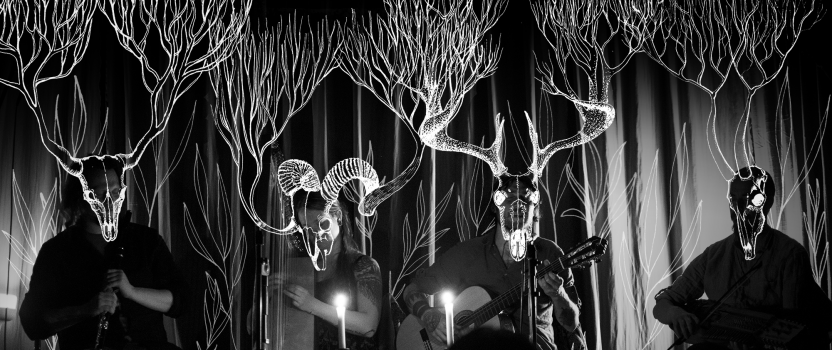
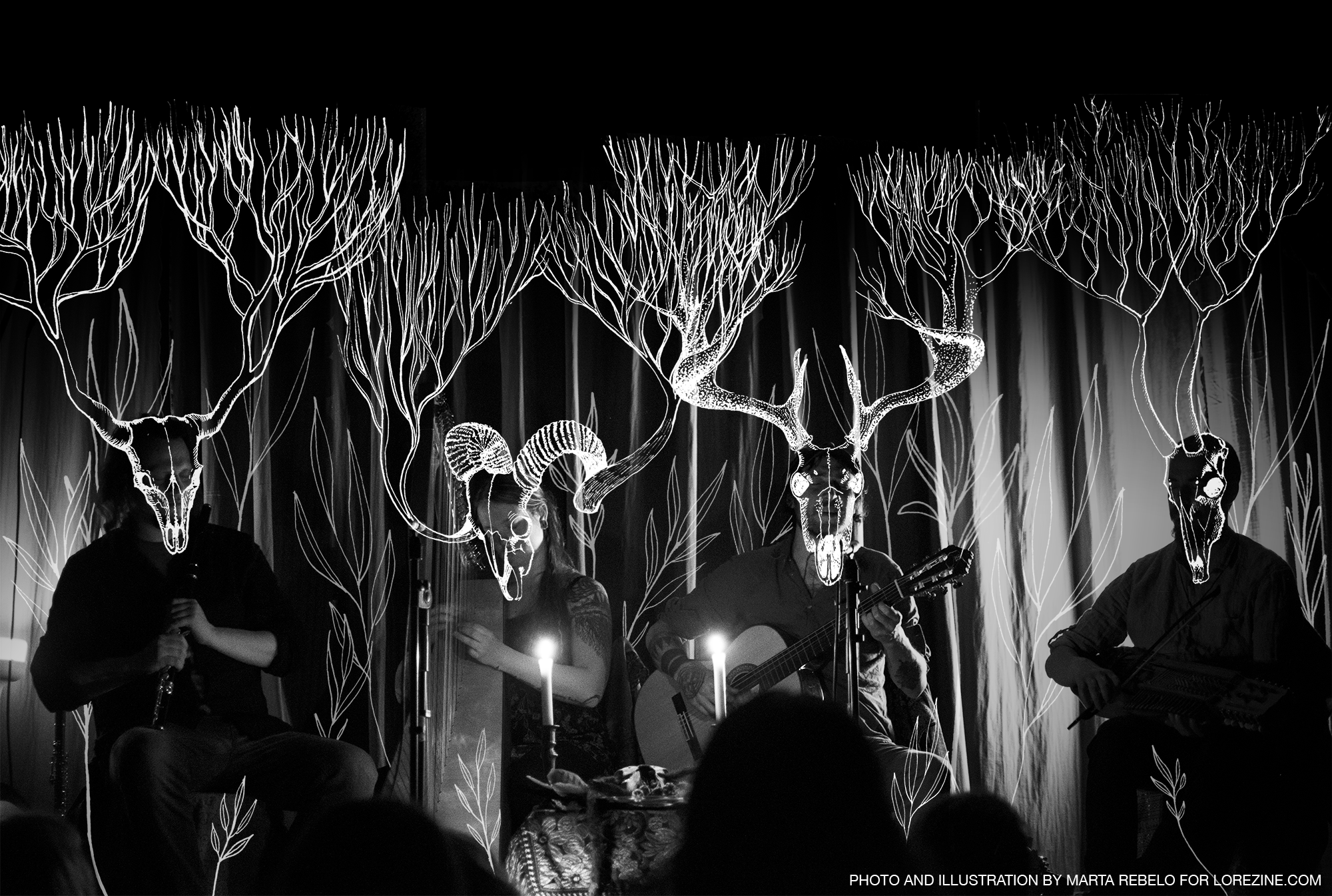
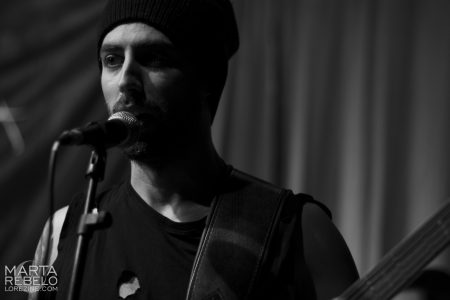
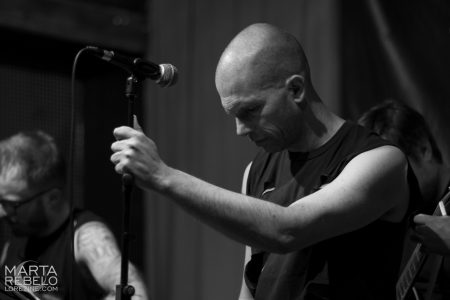
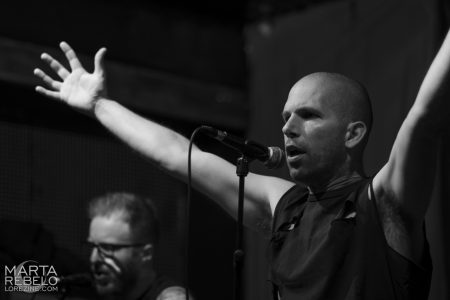
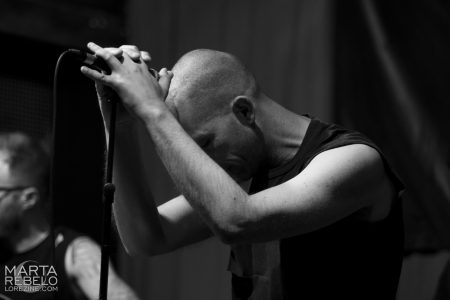
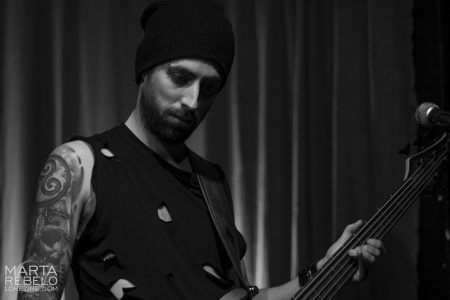
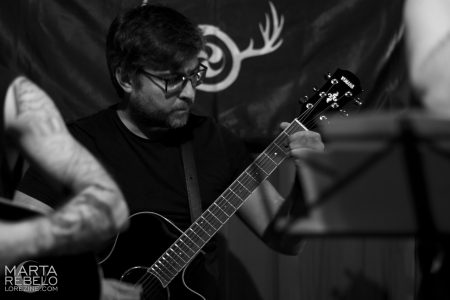
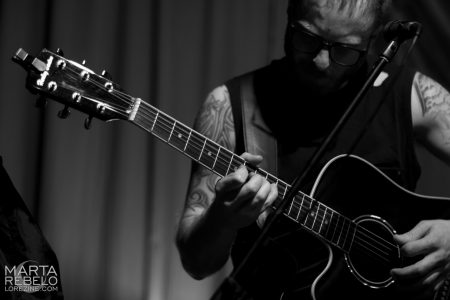
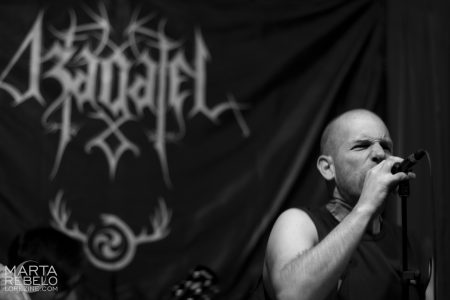
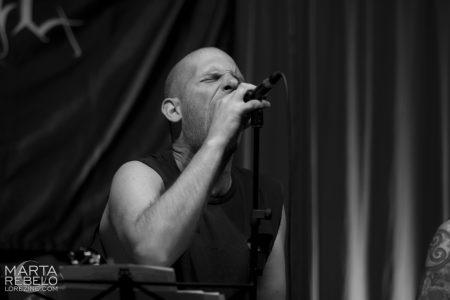
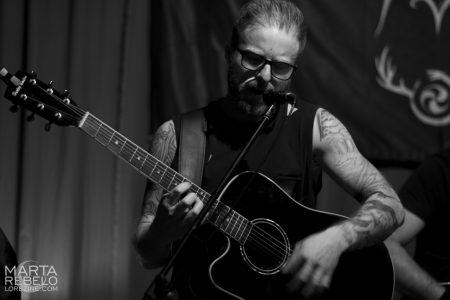
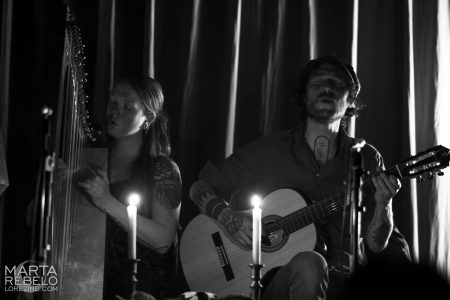
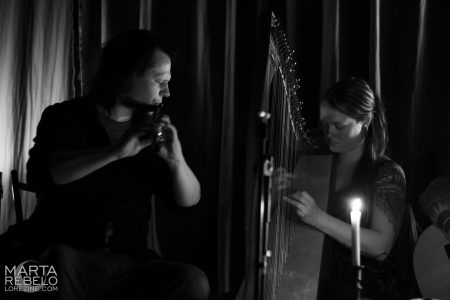
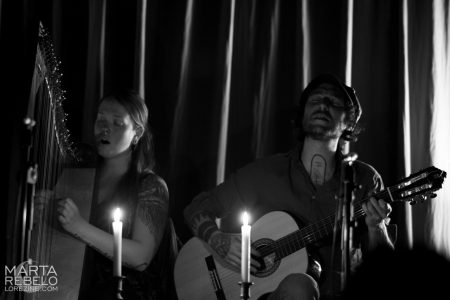
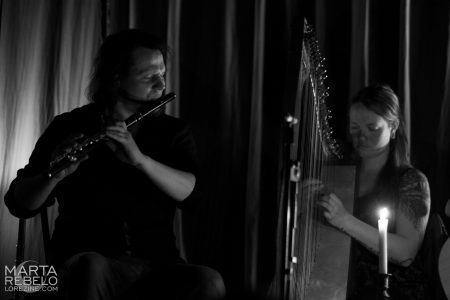
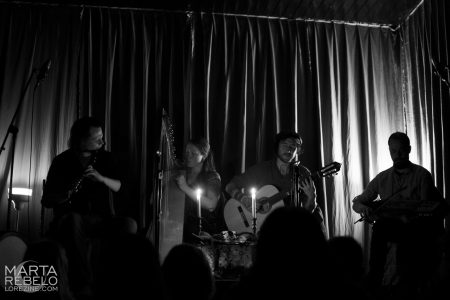
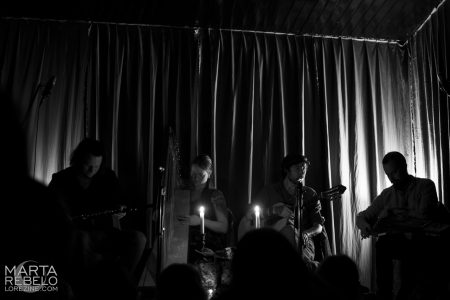
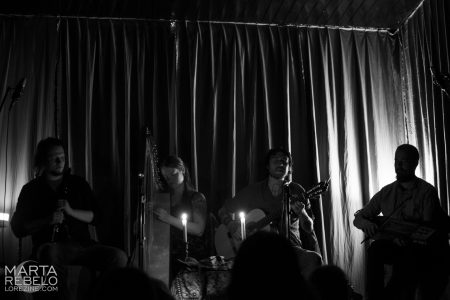
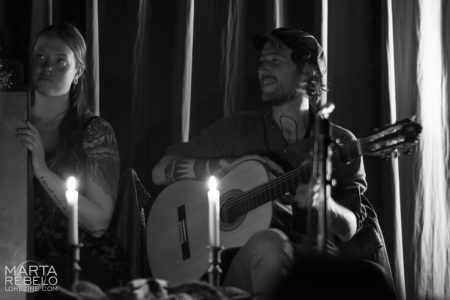
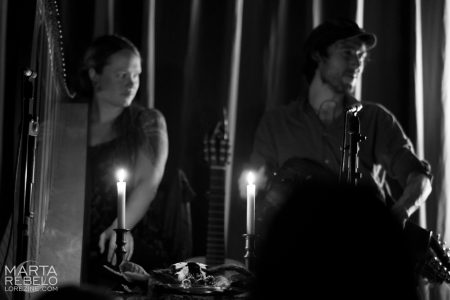
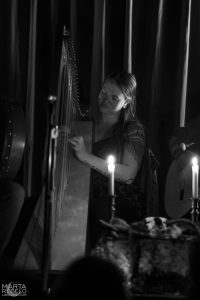
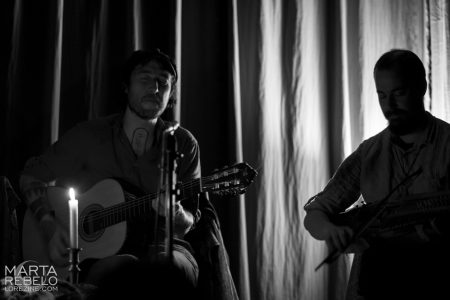
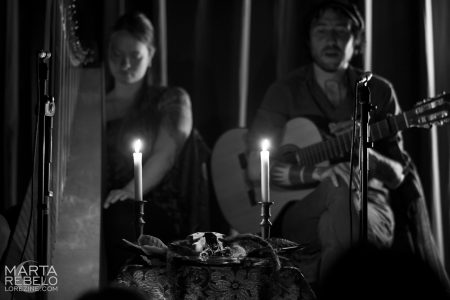
Leave a Reply
Your email is safe with us.